
Exploring Panamá
-
Conservación de humedales costeros
-
Resiliencia costera
When I first heard about the idea behind the TCU Global Academy trip to Panamá I was unsure how such a variety of students could work together for a common goal. However, I soon realized that the issue of sustainability is a very complex issue that requires the collaboration of numerous fields besides my own. As an Environmental Science major the idea of working with NGOs to raise awareness, while also gaining field experience was very intriguing.
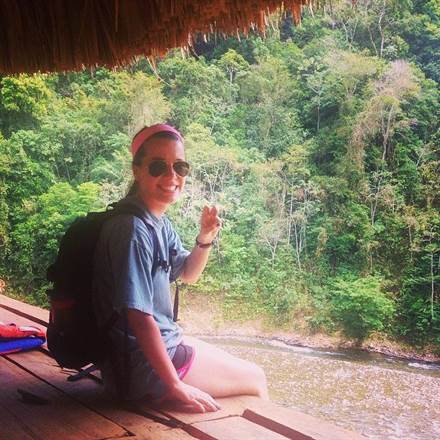
Upon arrival my view of Panamá completely changed when I saw how developmental oriented the city was. The huge development projects that were directly alongside national parks created such a unique landscape that I have never experienced.
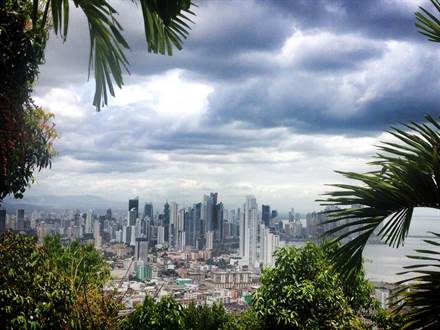
I had the privilege of working with Wetlands International with the overall goal being the improvement of communication and education for mangrove protection and conservation. My major was very helpful with understanding the ecological importance of the wetlands. I had known the importance of mangrove and other wetland areas for ecosystem services. However, the prevention of flooding, which is the most important service that applies to the Panamanian people, was unknown to me.
As we traveled around the city, we were able to see first hand the development projects, such as the coastal business and commercial buildings. It was interesting to analyze and learn about the impact that these developments would have on surrounding areas. The scientific importance of the wetlands is that it provides a mechanism for safety and health of the citizens.
By working with students from the political science and journalism fields our group formulated much broader discussions on the issues. Political bias and structure, along with history were common topics along with the social media and communication aspect of sustainability.
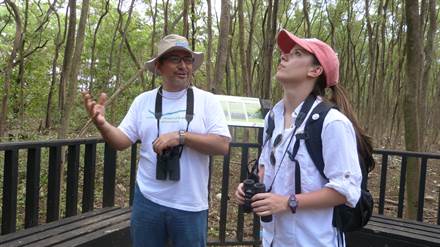
Julio (photo on the right) and Sander also set up meetings with a number of experts including environmental attorneys, United Nations representatives, and journalists from local newspapers. It was informative to hear about the specific laws in place for mangrove destruction and wetland protection. However, the dis-hearting part was that government officials, such as the President have been known to force projects through environmental regulations.
The journalists provided a different perspective of how the information that citizens receive can be extremely biased. Another issue that is not as prevalent in the United States is that the president has stocks in journalism companies so that they can indirectly release the information they want to.
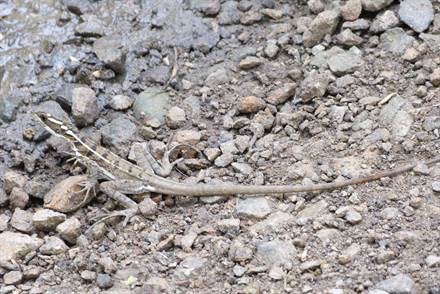
The field experience that Wetlands International took us on greatly expanded by knowledge on the country and the current struggles it is facing as it continues to expand to become a global leader in business and trade. Our group went to Metropolitan Park and saw a very diverse wildlife group such as the «Jesus Christ lizard» (Basilisk, photo left), sloth, and a hummingbird feeding its babies. In a short walk, there was a tremendous variety of species that opened my eyes to the importance of keeping an area untouched by development, even if the development is only meters away.
We visited a mangrove site to see the destruction that was taking place there for the expansion and development of a water treatment plant. It was interesting to talk with a plant employee because he gave a different perspective on the positive aspects on the plant. He told us that many public citizens that lived in lower elevation areas near the plant had been falsely informed that the flooding of their community as opposed to the destruction of mangroves, which was the actual cause.
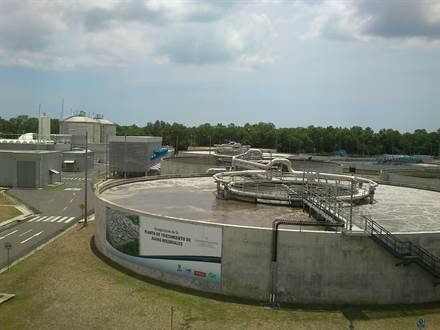
My experience in Panamá is one that will forever affect my life professionally as well as changing my overall perspective on the country. I am more aware of how business and commercial development relate to sustainability in Panamá. I will continue to keep up with the environmental concerns with the wetlands as the country continues to grow economically. My trip to Panama helped to increase my global awareness and knowledge on the environmental issues that are found throughout the world.
Katherine Pfeiffer
TCU Global Academy
Environmental Science
Additional photos by Sander Carpay
Other blogs & articles:
Jimmy Greene – Culture Quest Seeking Global Sustainability
Janette Quezada – Exploring the Truth
Katherine Pfeiffer – Exploring Panamá
Devin Rayburn – Learning and Fun in the Wetlands
TCU360 – Students reflect on Central American spring break
Ciudad del Saber – Presentación de estudiantes de TCU para la comunidad Ciudad del Saber (Spanish)
